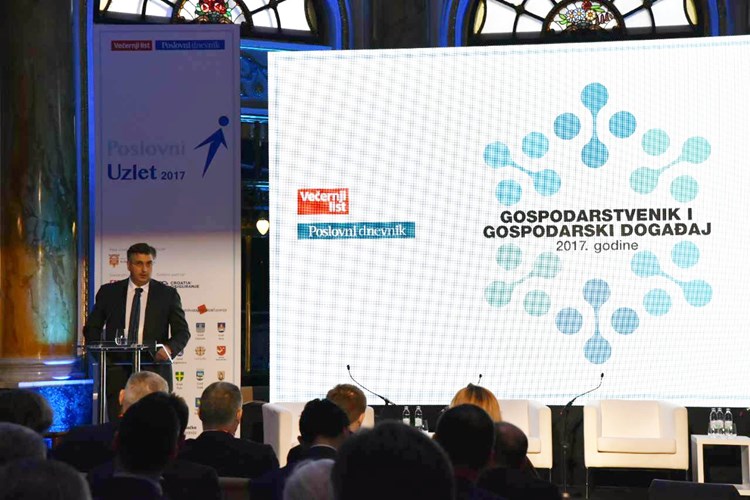- Published: 05.12.2017.
PM Plenkovic: Gov't will continue with the reforms important for the growth of the economy
Croatian Prime Minister Andrej Plenkovic has said that 2017 has been one of the most challenging years since Croatia gained independence and also an eventful year with many unexpected developments, adding that his cabinet is committed to the implementation of reforms having in mind the fact that reducing macroeconomic imbalances is key to further economic growth.
Addressing a business forum organised by the daily newspapers -- Vecernji List and Poslovni Dnevnik -- in Zagreb on Monday, PM Plenkovic said that the outgoing year was one of the most challenging years since the country gained independence.
2017 has been marked by a high number of unexpected events cropping up on the agenda in political, social, economic and international field, he added.
"Against this backdrop, the government has stuck to its continuous, steady goal and that is to implement the reforms and abide by the principles which we advocated in the election campaign and which are transposed into the platform of this government and into the National Reforms Programme, and entrepreneurs have been given a high priority in that context," Plenkovic said.
He recalled that the tax reform had eased the tax burden on entrepreneurs, which was conducive to the growth of their income, while easing the tax burden on citizens facilitated their consumption, all of which resulted in the country's economic growth.
It is evident that not only our forecast but also forecasts made by the national statistical office (DZS) and international institutions show that Croatia's economic growth in 2017 will be over 3%, which encourages us, the premier said.
He underscored that Croatia had experienced primary budget surplus for two years in a row, and that this surplus was the highest among the EU member-states.
The government has ensured the payment of interest rate from its own sources rather than borrowing for that purpose, which was why the share of public debt in the GDP is being reduced. Hence, Croatia's public debt ratio to GDP is to be lowered below 80% next year, he said.
He informed the conference of measures aimed at demographic revival of the society.
Plenkovic also commented on the Lex Agrokor, and reiterated that the adoption of that legislation prevented negative repercussions for the Croatian economy and for many suppliers and entrepreneurs.
The law is to help transform ways for doing business in Croatia, according to Plenkovic's speech.
Plenkovic informed the conference that his cabinet prepared a set of measures to increase the minimum wage and offset losses which could be caused for employers that way.
We want to show that our sensibility to certain industries such as clothes producing, timber and metallurgic industries, he said.
He also announced that as many as 31,000 work permits for foreign workers would be available in 2018.
